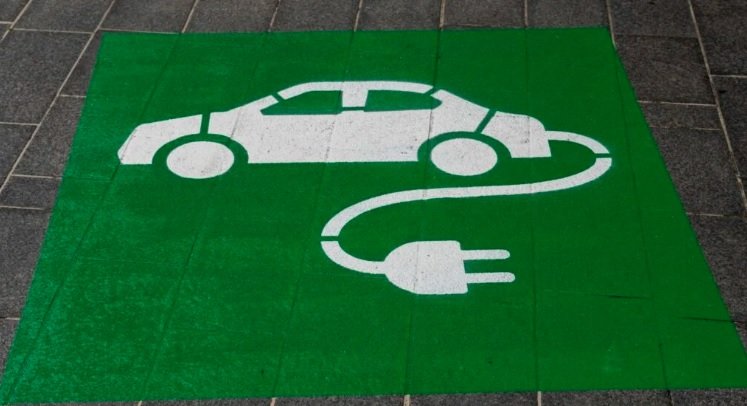The electric vehicle market has evolved beyond a single dominant player. Three American manufacturers now compete for different segments of the EV space, each offering distinct advantages in technology, performance, and design philosophy. Understanding these differences helps buyers make informed decisions about which brand aligns with their priorities.
Tesla dominates market share, while Rivian targets the adventure segment and Lucid pursues luxury performance. The process of selecting the perfect car can become mentally exhausting after analyzing endless options. To take a short break, you can explore the aviator game apk, a fun way to relax and recharge before diving back into your car comparisons.
Performance and Range
Tesla offers strong range across its lineup, with the Model S delivering over 400 miles on a single charge. The performance models provide quick acceleration and efficient battery management. Tesla’s vehicles prioritize efficiency and practical performance for daily driving needs.
The Lucid Air produces exceptional power output and delivers a top-tier acceleration performance against most competitors. The Air Grand Touring achieves over 500 miles of range, the highest of any production EV. Lucid’s motor technology delivers impressive power density and efficiency.
Rivian prioritizes off-road capability over maximum range. The R1T Dual truck achieves over 400 miles with the largest battery pack. The quad-motor setup enables tank turns through independent wheel control. Rivian vehicles feature adjustable air suspension with substantial ground clearance for trail use.
Technology and Software
Tesla’s Full Self-Driving system represents the most advanced driver assistance available, using vision-only processing. Over-the-air updates continuously add features and improve performance without dealer visits. The interface remains minimalist, with most controls accessible through the central touchscreen.
Lucid focuses on cabin technology and user experience. The Glass Cockpit features a large curved display for driver information. The DreamDrive Pro system includes numerous sensors for highway assistance and automated parking. Lucid’s approach emphasizes luxury and refinement over autonomous driving development.
Rivian’s Driver+ system offers adaptive cruise control and lane centering on highways. The vehicles include multiple cameras for off-road monitoring, showing wheel position and terrain obstacles. The gear tunnel provides lockable storage with power outlets for camping equipment and tools.
Pricing and Value
Tesla’s pricing strategy focuses on volume sales. The Model 3 and the Model Y cost around $40,000. The company regularly adjusts prices based on demand and production costs. Tesla offers the most accessible entry point among the three brands.
Lucid positions itself as a luxury alternative to European sedans. The Air Pure starts near $70,000, while top trims exceed $200,000. The brand targets buyers who prioritize craftsmanship and performance over mainstream appeal. Production volumes remain limited compared to competitors.
Rivian’s R1T and R1S both start near $70,000. The company offers three battery sizes with different range capabilities. Rivian maintains a direct-to-consumer sales model with experience centers in major markets. The brand appeals to outdoor enthusiasts who need electric capability combined with adventure readiness.
Charging Infrastructure

Tesla operates the largest proprietary charging network, with thousands of Supercharger locations globally. The network provides fast charging speeds that add significant range in minutes. Tesla opened its network to other brands starting in 2024 through adapter agreements.
Lucid and Rivian vehicles access third-party networks, including Electrify America. The proliferation of these third-party networks provides essential, although sometimes less integrated, travel options for non-Tesla drivers. This adoption of the North American Charging Standard (NACS) is a crucial step towards industry-wide charging compatibility.
Both brands adopted the Tesla charging connector for newer models, enabling future Supercharger access. Rivian includes complimentary charging at Rivian Adventure Network sites for initial owners.
Making Your Choice
The best brand depends on specific needs:
- Tesla – Offers the most practical ownership experience with extensive charging infrastructure and frequent software updates.
- Lucid – Delivers unmatched luxury, advanced design, and exceptional range for premium buyers.
- Rivian – Serves adventure-focused customers who need strong off-road capability, rugged design, and innovative utility features.
However, the landscape that defines these choices is rapidly evolving. The industry is actively pursuing solid-state batteries, which promise a significant leap in range and charging speed, fundamentally altering the competition in terms of efficiency.
Simultaneously, the intense race for full self-driving (FSD) capability will move the value proposition beyond mere hardware. These dual forces of battery breakthroughs and autonomy will ensure the market remains highly dynamic, continually challenging consumers to reassess their definition of the best EV.



